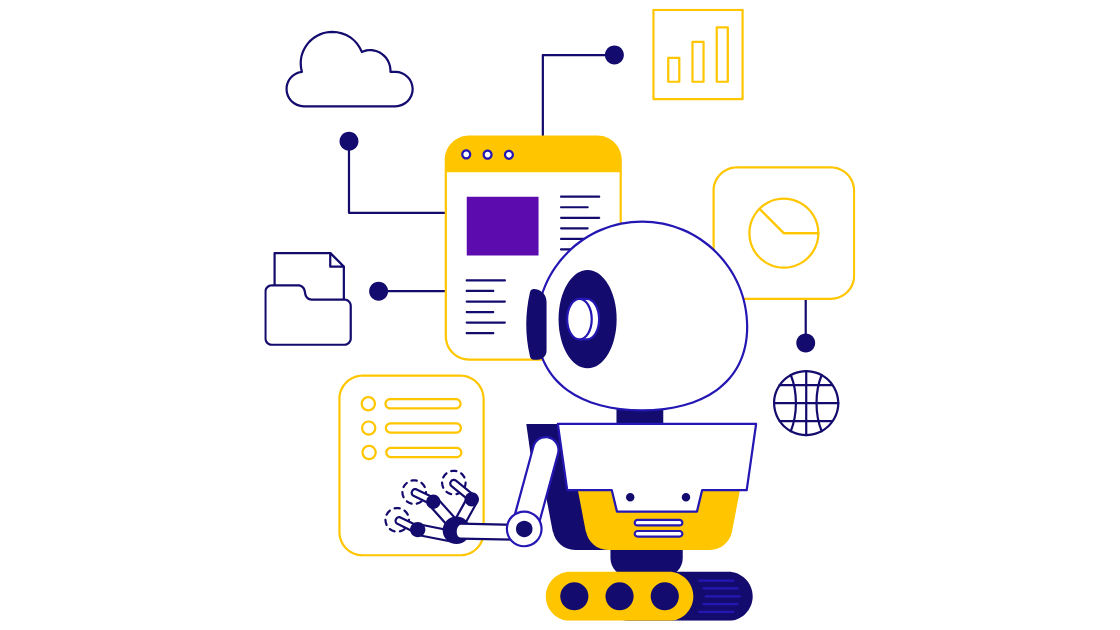Subscribe to The Talent Sync wherever you find your podcasts.
2025 Recruiting Trends to Watch: AI, Candidate Experience, and the Role of the Resume
The Talent Sync podcast recently featured a discussion on what recruiters can expect in 2025. Hosts Leah Daniels and Kevin Grossman explored a range of topics including the evolving role of AI, the impact of generative AI on candidate applications, and the ongoing struggle to balance candidate experience with the need for efficient screening and selection. The conversation highlighted the challenges and opportunities facing talent acquisition professionals in the coming year, emphasizing the need for adaptability, transparency, and a continued focus on the human element in the hiring process.
TL;DR
- AI is here to stay: Organizations will increasingly rely on AI-powered tools for tasks like resume screening and candidate matching.
- The rise of generative AI: Candidates are using tools like ChatGPT to enhance their applications, forcing recruiters to rethink their screening and assessment strategies.
- Candidate experience matters: Despite the challenges, organizations need to prioritize candidate experience to attract and retain top talent.
- Transparency is key: Clear communication with candidates about the hiring process, including the use of AI, is crucial.
Diving Deeper
The AI Revolution: Hype vs. Reality

Why it Matters: AI is rapidly changing the recruiting landscape, but it’s important to distinguish between hype and reality. While AI can automate tasks and improve efficiency, it’s not a magic bullet. Organizations need to carefully consider how to integrate AI into their workflows and ensure they are using it ethically and responsibly.
What We Recommend:
- Start with a clear understanding of your needs and goals. What specific challenges are you trying to solve with AI? Are you looking to reduce time-to-hire, improve the quality of hire, or eliminate bias in your hiring process?
- Choose AI tools that are aligned with your values and comply with relevant regulations. Ensure the AI tools you select are designed to promote fairness and transparency and adhere to legal requirements such as the EU’s AI Act.
- Provide training and support to your team to ensure they are comfortable using AI tools. Invest in training programs and resources to help your recruiters understand how to effectively use AI tools and interpret the data they generate.
- Monitor the impact of AI on your hiring process and make adjustments as needed. Track key metrics such as time-to-hire, quality of hire, and candidate satisfaction to assess the effectiveness of your AI tools and identify areas for improvement.
The Candidate Experience Conundrum
 Why it Matters: Candidate experience remains a top priority, but the increasing use of AI and automation can create new challenges. Organizations need to find ways to streamline the hiring process without sacrificing the human touch.
Why it Matters: Candidate experience remains a top priority, but the increasing use of AI and automation can create new challenges. Organizations need to find ways to streamline the hiring process without sacrificing the human touch.
What We Recommend:
- Be transparent with candidates about the hiring process, including the use of AI. Explain how AI is being used to screen resumes, schedule interviews, and assess candidates. This will help build trust and alleviate any concerns candidates may have about being evaluated by a machine.
- Provide regular updates and feedback to candidates throughout the process. Keep candidates informed of their status in the hiring process and provide constructive feedback, even if they are not selected for the role.
- Offer opportunities for candidates to connect with human recruiters and hiring managers. While AI can automate many tasks, it’s important to maintain a human connection throughout the hiring process. This could include offering virtual coffee chats or in-person interviews.
- Make the application process as easy and user-friendly as possible. Use mobile-friendly applications, minimize the number of required fields, and offer a variety of ways for candidates to submit their information.
The Evolving Role of the Resume
 Why it Matters: With the rise of generative AI, the traditional resume is facing new scrutiny. Recruiters are struggling to differentiate between candidates who have genuinely crafted their resumes and those who have used AI to “game” the system. This raises questions about the future of the resume and how recruiters can effectively assess candidate qualifications.
Why it Matters: With the rise of generative AI, the traditional resume is facing new scrutiny. Recruiters are struggling to differentiate between candidates who have genuinely crafted their resumes and those who have used AI to “game” the system. This raises questions about the future of the resume and how recruiters can effectively assess candidate qualifications.
What We Recommend:
- Explore alternative methods of assessing candidate skills and experience. This could include skills-based assessments, portfolio reviews, or work sample tests. These methods can provide a more objective measure of a candidate’s abilities and help you identify candidates with the specific skills you need.
- Focus on evaluating a candidate’s potential and fit, rather than just their past experience. Look for candidates who are eager to learn and grow, and who possess the soft skills that are essential for success in your organization.
- Use behavioral interview questions to get a better sense of a candidate’s skills and abilities. Ask questions that probe how candidates have handled specific challenges in the past. This can help you assess their problem-solving skills, critical thinking abilities, and emotional intelligence.
- Consider incorporating video resumes or other multimedia formats into the application process. These formats can provide a more dynamic and engaging way for candidates to showcase their skills and personality.
The Need for Speed: Streamlining the Hiring Process
 Why it Matters: Lengthy hiring processes can frustrate candidates and lead to lost opportunities. Organizations need to find ways to accelerate the process without compromising quality. This is especially important in today’s competitive talent market, where top candidates are often in high demand.
Why it Matters: Lengthy hiring processes can frustrate candidates and lead to lost opportunities. Organizations need to find ways to accelerate the process without compromising quality. This is especially important in today’s competitive talent market, where top candidates are often in high demand.
What We Recommend:
- Identify and eliminate bottlenecks in your hiring process. Analyze your current hiring process to identify any steps that are causing delays. This could include slow response times from hiring managers, inefficient scheduling processes, or unnecessary assessments.
- Use technology to automate tasks and streamline workflows. Leverage technology to automate tasks such as resume screening, interview scheduling, and candidate communication. This can free up recruiters to focus on more strategic tasks, such as building relationships with candidates and providing a positive candidate experience.
- Empower hiring managers to make quicker decisions. Provide hiring managers with the information and tools they need to make informed decisions quickly. This could include access to candidate profiles, interview guides, and assessment results.
- Develop a clear communication plan to keep candidates informed throughout the process. Set expectations for communication upfront and provide regular updates to candidates, even if there are no major developments. This will help keep candidates engaged and prevent them from dropping out of the process.
Final Thoughts
The year 2025 promises to be another year of change and evolution for the recruiting industry. AI will continue to play a growing role, and organizations will need to adapt to the challenges and opportunities it presents. By embracing transparency, prioritizing candidate experience, and focusing on the human element in the hiring process, organizations can navigate these changes and build strong, successful teams.


